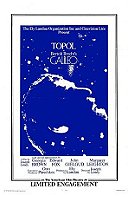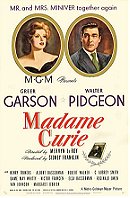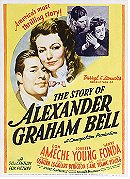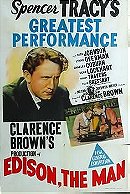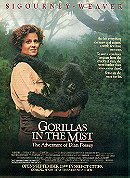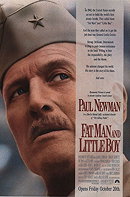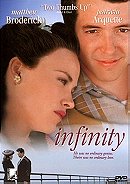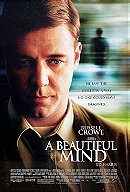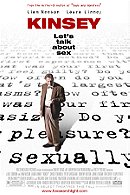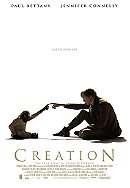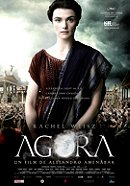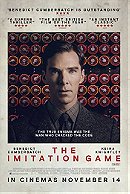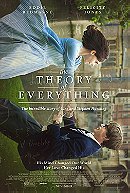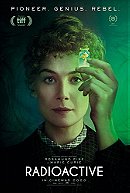Movies About Scientists
Sort by:
Showing 17 items
Decade:
Rating:
List Type:

Paul Muni as Louis Pasteur
From: Wikipédia, the free Encyclopedia
Louis Pasteur (December 27, 1822 – September 28, 1895) was a French chemist and microbiologist renowned for his discoveries of the principles of vaccination, microbial fermentation and pasteurization. He is remembered for his remarkable breakthroughs in the causes and preventions of diseases, and his discoveries have saved countless lives ever since. He reduced mortality from puerperal fever, and created the first vaccines for rabies and anthrax. His medical discoveries provided direct support for the germ theory of disease and its application in clinical medicine. He is best known to the general public for his invention of the technique of treating milk and wine to stop bacterial contamination, a process now called pasteurization. He is regarded as one of the three main founders of bacteriology, together with Ferdinand Cohn and Robert Koch, and is popularly known as the "father of microbiology".
Kandi's rating:



Curd Jurgens as Wernher von Braun
From: Wikipédia, the free Encyclopedia
Wernher Magnus Maximilian, Freiherr von Braun (March 23, 1912 – June 16, 1977) was a German and American aerospace engineer and space architect. He was one of the leading figures in the development of rocket technology in Germany during World War II and, subsequently, in the United States. He is considered one of the "Fathers of Rocket Science".
In his twenties and early thirties, von Braun was the central figure in the Nazis' rocket development program, responsible for the design and realization of the V-2 combat rocket during World War II. After the war, he and some select members of his rocket team were taken to the United States as part of the secret Operation Paperclip. Von Braun worked on the United States Army intermediate range ballistic missile (IRBM) program before his group was assimilated by NASA. Under NASA, he served as director of the newly formed Marshall Space Flight Center and as the chief architect of the Saturn V launch vehicle, the superbooster that propelled the Apollo spacecraft to the Moon. According to one NASA source, he is "without doubt, the greatest rocket scientist in history". His crowning achievement was to lead the development of the Saturn V booster rocket that helped land the first men on the Moon in July 1969. In 1975 he received the National Medal of Science.

Topol as Galileo
From: Wikipédia, the free Encyclopedia
Galileo Galilei (15 February 1564 – 8 January 1642), often known mononymously as Galileo, was an Italian physicist, mathematician, engineer, astronomer, and philosopher who played a major role in the scientific revolution during the Renaissance. His achievements include improvements to the telescope and consequent astronomical observations and support for Copernicanism. Galileo has been called the "father of modern observational astronomy", the "father of modern physics", the "father of science", and "the father of modern science".
His contributions to observational astronomy include the telescopic confirmation of the phases of Venus, the discovery of the four largest satellites of Jupiter (named the Galilean moons in his honour), and the observation and analysis of sunspots. Galileo also worked in applied science and technology, inventing an improved military compass and other instruments.
Galileo's championing of heliocentrism was controversial within his lifetime, a time when most subscribed to either geocentrism or the Tychonic system. He met with opposition from astronomers, who doubted heliocentrism due to the absence of an observed stellar parallax. The matter was investigated by the Roman Inquisition in 1615, which concluded that heliocentrism was false and contrary to scripture, placing works advocating the Copernican system on the index of banned books and forbidding Galileo from advocating heliocentrism. Galileo later defended his views in Dialogue Concerning the Two Chief World Systems, which appeared to attack Pope Urban VIII, thus alienating not only the Pope but also the Jesuits, both of whom had supported Galileo up until this point. He was tried by the Holy Office, then found "vehemently suspect of heresy", was forced to recant, and spent the rest of his life under house arrest. It was while Galileo was under house arrest that he wrote one of his finest works, Two New Sciences, in which he summarised the work he had done some forty years earlier, on the two sciences now called kinematics and strength of materials.

Greer Garson as Marie Curie
Walter Pidgeon as Pierre Curie
From: Wikipédia, the free Encyclopedia
Marie Skłodowska-Curie ( 7 November 1867 – 4 July 1934) was a Polish and naturalized-French physicist and chemist who conducted pioneering research on radioactivity. She was the first woman to win a Nobel Prize, the first person (and only woman) to win twice, the only person to win twice in multiple sciences, and was part of the Curie family legacy of five Nobel Prizes. She was also the first woman to become a professor at the University of Paris, and in 1995 became the first woman to be entombed on her own merits in the Panthéon in Paris.
She was born Maria Salomea Skłodowska in Warsaw, in what was then the Kingdom of Poland, part of the Russian Empire. She studied at Warsaw's clandestine Floating University and began her practical scientific training in Warsaw. In 1891, aged 24, she followed her older sister Bronisława to study in Paris, where she earned her higher degrees and conducted her subsequent scientific work. She shared the 1903 Nobel Prize in Physics with her husband Pierre Curie and with physicist Henri Becquerel. She won the 1911 Nobel Prize in Chemistry.
Her achievements included a theory of radioactivity (a term that she coined), techniques for isolating radioactive isotopes, and the discovery of two elements, polonium and radium. Under her direction, the world's first studies were conducted into the treatment of neoplasms, using radioactive isotopes. She founded the Curie Institutes in Paris and in Warsaw, which remain major centres of medical research today. During World War I, she established the first military field radiological centres.
Kandi's rating:


Gorillas in the Mist (1988)

Sigourney Weaver as Dian Fossey
From: Wikipédia, the free Encyclopedia
Dian Fossey (January 16, 1932 – c. December 26, 1985) was an American zoologist, primatologist, and anthropologist who undertook an extensive study of gorilla groups over a period of 18 years. She studied them daily in the mountain forests of Rwanda, initially encouraged to work there by anthropologist Louis Leakey. Her 1983 book, Gorillas in the Mist, combines her scientific study of the mountain gorilla at Karisoke Research Center with her own personal story. It was adapted into a 1988 film. Fossey was murdered in 1985; the case remains open.
Called one of the foremost primatologists in the world while she was alive, Fossey, along with Jane Goodall and Birutė Galdikas, were the so-called Trimates, a group of three prominent researchers on primates (Fossey on gorillas; Goodall on chimpanzees; and Galdikas on orangutans) sent by Leakey to study great apes in their natural environments.
Kandi's rating:


Fat Man and Little Boy (1989)

Dwight Schultz as J. Robert Oppenheimer
From: Wikipédia, the free Encyclopedia
Julius Robert Oppenheimer (April 22, 1904 – February 18, 1967) was an American theoretical physicist and professor of physics at the University of California, Berkeley. He is among the persons who are often called the "father of the atomic bomb" for their role in the Manhattan Project, the World War II project that developed the first nuclear weapons. The first atomic bomb was detonated on July 16, 1945, in the Trinity test in New Mexico; Oppenheimer remarked later that it brought to mind words from the Bhagavad Gita: "Now I am become Death, the destroyer of worlds."
After the war he became a chief advisor to the newly created United States Atomic Energy Commission and used that position to lobby for international control of nuclear power to avert nuclear proliferation and an arms race with the Soviet Union. After provoking the ire of many politicians with his outspoken opinions during the Second Red Scare, he had his security clearance revoked in a much-publicized hearing in 1954, and was effectively stripped of his direct political influence; he continued to lecture, write and work in physics. Nine years later President John F. Kennedy awarded (and Lyndon B. Johnson presented) him with the Enrico Fermi Award as a gesture of political rehabilitation.
Oppenheimer's notable achievements in physics include the Born–Oppenheimer approximation for molecular wavefunctions, work on the theory of electrons and positrons, the Oppenheimer–Phillips process in nuclear fusion, and the first prediction of quantum tunneling. With his students he also made important contributions to the modern theory of neutron stars and black holes, as well as to quantum mechanics, quantum field theory, and the interactions of cosmic rays. As a teacher and promoter of science, he is remembered as a founding father of the American school of theoretical physics that gained world prominence in the 1930s. After World War II, he became director of the Institute for Advanced Study in Princeton
Infinity (1996)

Matthew Broderick as Richard Feynman
From: Wikipédia, the free Encyclopedia
Richard Phillips Feynman (May 11, 1918 – February 15, 1988) was an American theoretical physicist known for his work in the path integral formulation of quantum mechanics, the theory of quantum electrodynamics, and the physics of the superfluidity of supercooled liquid helium, as well as in particle physics (he proposed the parton model). For his contributions to the development of quantum electrodynamics, Feynman, jointly with Julian Schwinger and Sin-Itiro Tomonaga, received the Nobel Prize in Physics in 1965. He developed a widely used pictorial representation scheme for the mathematical expressions governing the behavior of subatomic particles, which later became known as Feynman diagrams. During his lifetime, Feynman became one of the best-known scientists in the world. In a 1999 poll of 130 leading physicists worldwide by the British journal Physics World he was ranked as one of the ten greatest physicists of all time.
He assisted in the development of the atomic bomb during World War II and became known to a wide public in the 1980s as a member of the Rogers Commission, the panel that investigated the Space Shuttle Challenger disaster. In addition to his work in theoretical physics, Feynman has been credited with pioneering the field of quantum computing, and introducing the concept of nanotechnology. He held the Richard Chace Tolman professorship in theoretical physics at the California Institute of Technology.
Feynman was a keen popularizer of physics through both books and lectures, notably a 1959 talk on top-down nanotechnology called There's Plenty of Room at the Bottom, and the three-volume publication of his undergraduate lectures, The Feynman Lectures on Physics. Feynman also became known through his semi-autobiographical books Surely You're Joking, Mr. Feynman! and What Do You Care What Other People Think? and books written about him, such as Tuva or Bust!.
A Beautiful Mind (2001)

Russell Crowe as John Forbes Nash, Jr.
From: Wikipédia, the free Encyclopedia
John Forbes Nash, Jr. (born June 13, 1928) is an American mathematician whose works in game theory, differential geometry, and partial differential equations have provided insight into the factors that govern chance and events inside complex systems in daily life. His theories are used in market economics, computing, evolutionary biology, artificial intelligence, accounting, politics and military theory. Serving as a Senior Research Mathematician at Princeton University during the latter part of his life, he shared the 1994 Nobel Memorial Prize in Economic Sciences with game theorists Reinhard Selten and John Harsanyi.
Kandi's rating:


Kinsey (2005)

Liam Neeson as Alfred Kinsey
From: Wikipédia, the free Encyclopedia
Alfred Charles Kinsey (June 23, 1894 – August 25, 1956) was an American biologist, professor of entomology and zoology, and sexologist who in 1947 founded the Institute for Sex Research at Indiana University, now known as the Kinsey Institute for Research in Sex, Gender, and Reproduction. He is best known for writing Sexual Behavior in the Human Male (1948) and Sexual Behavior in the Human Female (1953), also known as the Kinsey Reports, as well as the Kinsey scale. Kinsey's research on human sexuality, foundational to the field of sexology, provoked controversy in the 1940s and 1950s. His work has influenced social and cultural values in the United States, as well as internationally.
Kandi's rating:


Creation (2009)

Paul Bettany as Charles Darwin
From: Wikipédia, the free Encyclopedia
Darwin was a prolific writer. Even without publication of his works on evolution, he would have had a considerable reputation as the author of The Voyage of the Beagle, as a geologist who had published extensively on South America and had solved the puzzle of the formation of coral atolls, and as a biologist who had published the definitive work on barnacles. While On the Origin of Species dominates perceptions of his work, The Descent of Man and The Expression of the Emotions in Man and Animals had considerable impact, and his books on plants including The Power of Movement in Plants were innovative studies of great importance, as was his final work on The Formation of Vegetable Mould through the Action of Worms.
Agora (2009)

Rachel Weisz as Hypatia
Works - From Wikipédia, the free Encyclopedia
No written work widely recognized by scholars as Hypatia's own has survived to the present time. Many of the works commonly attributed to her are believed to have been collaborative works with her father, Theon Alexandricus. This kind of authorial uncertainty is typical for female philosophers in antiquity.
A partial list of Hypatia's works as mentioned by other antique and medieval authors or as posited by modern authors:
A commentary on the 13-volume Arithmetica by Diophantus.
A commentary on the Conics of Apollonius.
Edited the existing version of Ptolemy's Almagest.
Edited her father's commentary on Euclid's Elements.
She wrote a text "The Astronomical Canon". (Either a new edition of Ptolemy's Handy Tables or commentary on the aforementioned Almagest.)
Her contributions to science are reputed to include the invention of the hydrometer, used to determine the relative density (or specific gravity) of liquids. However, the hydrometer was invented before Hypatia, and already known in her time.
Her student Synesius, bishop of Cyrene, wrote a letter describing his construction of an astrolabe. Earlier astrolabes predate that of Synesius by at least a century, and Hypatia's father had gained fame for his treatise on the subject. However, Synesius claimed that his was an improved model. Synesius also sent Hypatia a letter describing a hydrometer, and requesting her to have one constructed for him.
The Imitation Game (2014)

Benedict Cumberbatch as Alan Turing
From: Wikipédia, the free Encyclopedia
Alan Mathison Turing, (23 June 1912 – 7 June 1954) was a British pioneering computer scientist ,mathematician, logician, cryptanalyst, philosopher, mathematical biologist, and marathon and ultra distance runner. He was highly influential in the development of computer science, providing a formalisation of the concepts of "algorithm" and "computation" with the Turing machine, which can be considered a model of a general purpose computer. Turing is widely considered to be the father of theoretical computer science and artificial intelligence.
During World War II, Turing worked for the Government Code and Cypher School (GC&CS) at Bletchley Park, Britain's codebreaking centre. For a time he led Hut 8, the section responsible for German naval cryptanalysis. He devised a number of techniques for breaking German ciphers, including improvements to the pre-war Polish bombe method, an electromechanical machine that could find settings for the Enigma machine. Winston Churchill said that Turing made the single biggest contribution to Allied victory in the war against Nazi Germany. Turing's pivotal role in cracking intercepted coded messages enabled the Allies to defeat the Nazis in several crucial battles. It has been estimated that the work at Bletchley Park shortened the war in Europe by as many as two to four years.
After the war, he worked at the National Physical Laboratory, where he designed the ACE, among the first designs for a stored-program computer. In 1948 Turing joined Max Newman's Computing Laboratory at Manchester University, where he assisted development of the Manchester computers and became interested in mathematical biology. He wrote a paper on the chemical basis of morphogenesis, and predicted oscillating chemical reactions such as the Belousov–Zhabotinsky reaction, first observed in the 1960s.
Kandi's rating:


The Theory of Everything (2014)

Eddie Redmayne as Stephen Hawking
From: Wikipédia
Stephen William Hawking (Born January 1942) is an English theoretical physicist, cosmologist, author and Director of Research at the Centre for Theoretical Cosmology within the University of Cambridge. His scientific works include a collaboration with Roger Penrose on gravitational singularity theorems in the framework of general relativity, and the theoretical prediction that black holes emit radiation, often called Hawking radiation. Hawking was the first to set forth a cosmology explained by a union of the general theory of relativity and quantum mechanics. He is a vigorous supporter of the many-worlds interpretation of quantum mechanics.
Hawking is an Honorary Fellow of the Royal Society of Arts, a lifetime member of the Pontifical Academy of Sciences, and a recipient of the Presidential Medal of Freedom, the highest civilian award in the United States. Hawking was the Lucasian Professor of Mathematics at the University of Cambridge between 1979 and 2009.
Hawking has achieved success with works of popular science in which he discusses his own theories and cosmology in general; his book A Brief History of Time stayed on the British Sunday Times best-seller list for a record-breaking 237 weeks.
Kandi's rating:


 Login
Login
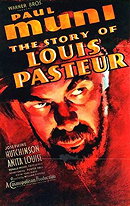
 34
34
 6.8
6.8
 7.3
7.3

